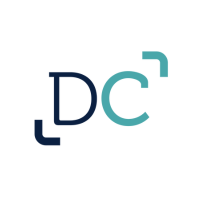Accelerating the Deal: Harnessing AI & Automation to Fast-Track Closings
Learn how AI and legal tech accelerate deal closings, boost client satisfaction, and give law firms a competitive edge.

Mar 25, 2025

The legal industry is undergoing a transformation, and midsize law firms are at the forefront of this change. In a recent DealCloser webinar, The Rise of Midsize Firms: How Tech is Leveling the Playing Field, experts Todd Strang, partner at KMSC Law, and Melissa Wexler, midsize law firm AI product sales lead at Thomson Reuters, shared their insights on how technology is redefining the competitive landscape for midsize firms. With MD Black, head of customer success at DealCloser, moderating the discussion, the panel provided a deep dive into the evolving role of legal technology, AI, and workflow automation in modern law firms.
Missed the webinar? We took notes! Below are key takeaways that highlight how midsize firms are leveraging technology to compete with—and in some cases surpass—larger firms in efficiency, client service, and innovation. To explore the full discussion, watch the webinar on YouTube.
Historically, midsize firms have struggled to compete with Big Law due to resource limitations. However, advancements in technology have fundamentally shifted the balance. The ability to automate administrative tasks, streamline deal management, and integrate AI-driven analytics is allowing midsize firms to operate with the efficiency and sophistication previously reserved for the largest firms.
A major factor driving this shift is that general counsels are becoming more vocal about moving costs downstream to reliable, lower-cost providers. This shift has allowed midsize firms to punch above their weight and take on work that would have traditionally gone to Big Law firms.
Driven by the push toward automation, midsized firms are not just aiming to reduce manual workloads—they are leveraging new technology to optimize legal processes and deliver faster, higher-quality results. Digital deal management platforms are eliminating the need for extensive manual work in document organization, signature collection, and transaction execution. With AI now playing an active role in legal research, contract review, and predictive analytics, midsize firms can respond to client demands more swiftly while maintaining cost-effectiveness.
As the head of KMSC’s innovation initiatives, Todd Strang noted these benefits within his firm. The traditional methods of managing transactions were labor-intensive, prone to error, and time-consuming. With digital tools, they have been able to close deals faster—as much as 75–80% time savings—while reducing inefficiencies, and ultimately providing better service to clients.
The implementation of legal technology is also redefining how firms attract and retain top talent. Increasingly, legal professionals—especially those transitioning from Biglaw—are seeking workplaces that embrace innovation. A firm’s ability to offer innovative tools that reduce administrative burden and enhance workflow efficiency is becoming a key differentiator in hiring and retention.
Moreover, firms that invest in AI and automation often experience improved staff satisfaction and lower attrition rates. A recent LexisNexis survey found that 19% of Biglaw lawyers would consider leaving their firm if they fail to embrace AI, and one in four lawyers indicated that lack of AI investment would negatively impact their careers.
Firms that embrace efficiency and give team members the ability to focus on high-value work rather than repetitive tasks foster cultures that people are energized by, rather than exhausted of. With attrition a significant concern in the market, equipping lawyers and paralegals with technology that augments their workflows is a win-win for both clients and firms.
Generative AI has moved beyond the hype and is proving its real-world value in legal settings. Firms leveraging AI for contract analysis, due diligence, and document review are gaining a competitive advantage, delivering insights and results at a fraction of the time previously required.
All across the legal landscape, the technology is proving that the popular trends are withstanding the highs and lows of use, and the efficiencies are real. Early adopters are seeing tangible value, and AI has expanded its use cases far enough that law schools have even begun to roll it out to students. Firms that embrace AI can eliminate bottlenecks, reduce write offs, and free up time for higher-level, strategic work.
Tools have joined the market very rapidly since the takeoff of AI began, and the options that firms have to choose from have grown exponentially. What used to be a limited selection of automation tools has become a crowded network of products, each requiring research and due diligence. Some tools work within Word documents to make precise edits, while others perform broader analytics or help manage and organize the transaction process. Selecting the right AI tools is helping smaller firms work at the same level of efficiency as larger firms with fewer resources.
Technology adoption isn’t just an internal improvement—it’s also driven by evolving client expectations. Clients today demand more efficiency, transparency, and cost-effectiveness from their legal partners. As a result, midsize firms that leverage technology to meet these demands are gaining a significant advantage.
Corporate legal departments are investing in technology faster than law firms have been, and they expect their outside counsel to match that pace. Midsize firms that align with this trend are positioning themselves as the preferred choice against firms that are not prioritizing technology.
For midsize law firms, the message is clear: embracing technology is no longer optional—it’s imperative for growth and sustainability. Firms that successfully integrate digital solutions into their workflows will not only compete with larger firms but may even surpass them in terms of agility and responsiveness.
As legal professionals continue to navigate this new era, those who leverage technology effectively will set the standard for efficiency, service quality, and client satisfaction. The future belongs to firms that adapt, innovate, and embrace the power of legal technology.
Key Takeaways:
Midsize firms are gaining a competitive edge as legal work shifts away from Biglaw to more cost-effective providers.
Automation and AI are transforming legal workflows, reducing inefficiencies, and enhancing client service.
Legal tech utilization is a major factor in talent retention and workplace satisfaction.
Clients increasingly expect firms to leverage technology for efficiency and cost-effectiveness.
Generative AI is moving from hype to real-world application, helping firms match or exceed the efficiency of larger competitors.
Firms that recognize and act on these trends will not only survive in the evolving legal landscape but thrive in it. For more insights, watch The Rise of Midsize Firms webinar on YouTube.
Learn how AI and legal tech accelerate deal closings, boost client satisfaction, and give law firms a competitive edge.

Discover how law firms can combat associate attrition by leveraging legal tech to streamline workflows, enhance mentorship, and retain top emerging...

The US has been very vocal online about their efforts on educating lawyers on new technology, so why does Canada seem to be lagging behind?

DealCloser anticipates extensive growth in 2022 following on from a record Q4 2021, and Warren Sinclair LLP is just one of the many expected law...

Prepare for the surge in deals in 2025 with technology-driven solutions like transaction management software to enhance efficiency and client...

71 Legal, a boutique corporate and commercial law firm based in Montreal, Canada, has selected DealCloser to enhance the firm’s transaction...

DealCloser will join a growing portfolio of innovative legal technology solutions that are specifically developed to provide law firms and in-house...

We will discuss some of the most vital home office must-haves for lawyers and where you can get access to them.

Innovation involves establishing new ways accomplishing tasks in more efficiently, finding faster and easier approaches for performing workplace...

Stay competitive as deal volume rises in the UK. Discover how legal tech, like transaction management software, can optimize workflows and drive...
